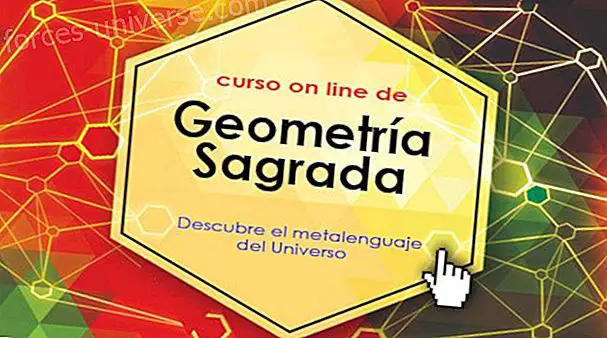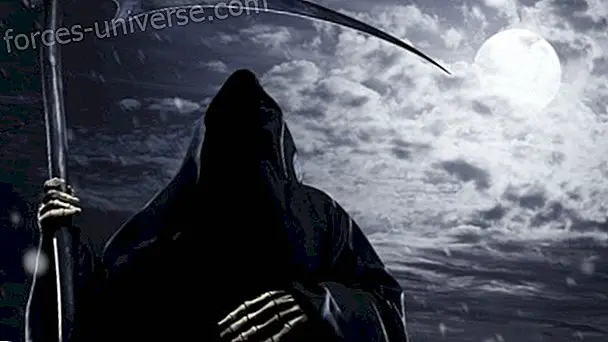
Mythology, as opposed to what many scholars of the subject say, is not only a set of fantastic stories and empty of meaning but, on the contrary, represents a form of expression Traditional Wisdom We might ask ourselves why the ancients put human passions and loves in part in the gods, while attributing them supranormal powers. This is very simple to explain, since what we translate today as gods was, for our ancestors, the representation of the guiding forces of the universe. And, according to the hermetic sentence of as it is above is below, the weaknesses and powers of the gods could be, although not necessarily, those of men.

In this way, what we call myth is symbolically a cluster of human experiences expressed in artistic and symbolic form, which today is not usually found in such a category.
Our ancestors, as we will do again the men of the 21st century, were very attentive to the behavior of the gods, because they knew that these very powerful forces had immediate effects on earthly life.
GEND THE EARTH
Description: It represents the Earth, the universal mother, and it is easy to find equivalent figures to it in the Babylonian, Phoenician and Hittite mythologies. Born after Chaos along with Eros, she engenders Uranus (the sky) alone and, joining him, the Titans, the Cyclops, the Giants, the Centimanos, the Erinias and the Nymphs Melias. It also breeds the Sea alone, with which it joins and gives birth to Nereo, Taumante, Forcis, Ceto and Euribia; and, joining Tartarus, the Typhoon monster
I APPROVE THE SUN
Description: Son of Zeus and Leto, and brother of Artemis. It is one of the most important gods of the pantheon. He was the god of prophecy, as evidenced by the cult he received in Delphi, where a pitia pronounced his oracles. In the Iliad he is called an "arrowhead, " and is responsible for killing men with his arrows, as his sister kills women. He is also the god of healing, of music and, in general, of harmony and the sublime, as opposed to Dionysus. It is frequently associated with the sun (Febo Apollo). There are several legends about his figure; one of the most famous tells the death of the Python snake at the hands of Apollo. In another one, Zeus kills Apollo's son, Asclepius, because he had dared to resurrect the dead. Apollo, angry, killed the Cyclops, lightning forgers who had killed his son's life. As punishment, Zeus forced him to serve King Admeto as a pastor for a year. Apollo had no wives, but love relationships with several characters: Cassandra, Daphne, Coronide (mother of Asclepius), Marpesa, Cipariso, Hyacinth, etc.
SELENE THE MOON
Description: The moon. Daughter of Hyperion and Tea; Eos and Helio's sister. Like his brother, he was traveling through the blue vault mounted on his car. With Zeus he fathered Pandía and with Endimión he had fifty daughters. It is also related to Bread.
HERMES MERCURY
Description: For the Romans, Mercury. Son of Zeus and Maya. It is a god of great complexity, coming from some ctonic divinity related to the fertility of the land and livestock. It is also linked to death: it is he who leads the dead to the underground world. It is also protector of travelers and merchants. He usually appears as a messenger of the gods. He had love with Aphrodite and from them Hermafrodito was born and, according to some sources, Priapus. Other children of his are Autolico (the grandfather of Odysseus), the argonaut Éurito and Dafnis. The most famous legend about Hermes says that, as soon as he was born, he escaped and arrived in Thessaly, where Apollo kept Admeto's herds. The boy stole the flock and, after sacrificing two of the animals, returned to where he was born, where he found a turtle; He killed her, took off the shell and put some strings made with guts. Thus invented the lyre. Apollo, upon learning of the theft by an old man who had witnessed it, went to where Hermes was with his mother and claimed the cattle. Hermes denied everything and they had to resort to Zeus, who ordered the boy to return the cattle. But when they reached the cave where the cattle were, Hermes took the lyre he had made and sang. Apollo, fascinated, proposed to change the cattle for the lyre.
AFRODITA VENUS
Description: For the Romans, Venus. It has a double genealogy: according to Hesiod, it emerged from the foam caused by the genitals of Uranus when it fell into the sea when it was castrated by Chrono. In Homeric works, she appears as the daughter of Zeus and Dione. It embodies the force of love, both pure and impure love. It is also the protector of beauty. In mythology, he is the wife of Hephaestus, although he also joined Ares (union from which Harmony, Fobo and Dimo were born) and with mortals such as Adonis and Anchises, with whom he had Aeneas.
ARES MARS
Description: In Rome, Mars. Son of Hera and Zeus. He is the god of war and his figure, violent and wild, is hated even by the gods themselves. His loves with Aphrodite are famous; in the Odyssey it is said that Hephaestus, her husband, was warned by the sun and placed a net under the bed of the lovers that closed by trapping them; He then called the rest of the gods to watch the show. Ares and Aphrodite fathered Harmonia, Fobo and Dimo. Another of his loves was the mortal Aglauro, daughter of Cécrope. From this union was born Alcipe. Subsequently, a son of Poseidon raped this girl and Ares killed him, so he was judged by the gods in the Areopagus. He also had relations with Eos and the nymph Harmony, from whom the Amazon descended.
CENTAURO JUPITER
Description: Hybrid beings of man and horse. They were children of the king Ijito pencil and a cloud. Iconnection had fallen in love with Hera and Zeus, to punish him, he modeled a cloud with the appearance of the goddess, whom the king joined. They inhabited the mountains of Thessaly and were beings of barbarian customs, as evidenced by what happened at the wedding of the Piritous pen. Ares, to take revenge on Pirítoo for not having fulfilled a sacrifice, made the Centaurs, drunkards, try to kidnap the wives of the pencils. There was a great fight between pencils and Centaurs. They lost the latter and were banished to the Peloponnese
Chiron
Description: It was a centaur, but it had nothing to do with the Centaurs children of Ixion. He was the son of Crono and Fílira, an oceanic who had been metamorphosed into a mare. Unlike the other centaurs, he was wise and kind; He welcomed Peleo when he was abandoned on the mountain and educated Jason, Achilles, Theseus and Asclepius. He was born immortal, but still died in the course of Heracles' fourth job. Heracles had been welcomed by another centaur, Folo, and during the meal the hero asked for wine. The centaur opened the skin, although he could not open it because it was the common property of his entire race. Then, all the Centaurs came and faced Heracles. He defended himself with his arrows and the Centaurs went to the abode of Chiron to defend them. But Chiron was accidentally injured by an arrow of the hero soaked in poison from the Hydra of Lerna. The wound caused him terrible pain and he begged Zeus to grant him death. Zeus agreed, but in return he must receive the immortality of some mortal, which was finally Prometheus
SATURN CHRONOS
Description: For the Romans, Saturn. Titan, son of Uranus and Gea. It is the second link in the "myth of succession" narrated by Hesiod in Theogony, and as such his figure has parallels in mythologies of the Middle East. According to Hesiod, Crono was the only one of the Titans who dared to confront his father, whom he attacked and castrated with a sickle. To do this he had to free the Cyclops and the Centímanos, but when he got the victory he locked them up again. He then went on to rule the world along with his sister and wife Rea. As his mother Gea prophesied that he would also be dethroned by one of his children, he would eat them as they were born, and he did that with Hestia, Demeter, Hera, Hades and Poseidon. When the last son, Zeus, was born, Rhea hid him on an island and instead presented Crono with a stone, which he swallowed. Once an adult, Zeus confronted his father with the help of his brothers, which Crono had vomited after drinking a substance that Rea had given him. In the fight he was also helped by the Cyclops and Centímanos, then finally released. In this war, called Titanomaquia, defeated Zeus and the Olympians, after which they imprisoned Crono and the other Titans in Tartarus.
URAN URAN
Description: It represents the sky, and its figure has parallels in ancient mythologies such as the Hittite or the Babylonian. It is the first stage within the "myth of succession" that tells the Theogony of Hesiod. According to this work, Gea is born and subsequently joins her forming the original couple. They engender the Titans, the Céclopes and the Cent Cent manos. Uranus, fearful that some of his children would take away his power, kept constantly on Gea, thus preventing his children from leaving the womb. Gea asked for help from her children, but only the youngest, Crono, dared to face her father. With a sickle he cut his genitals; These, upon falling into the sea, formed Aphrodite and from their blood the Erinias, the Giants and the Melia Nymphs were born.
NEPTUNE POSSESSION
Description: For the Romans, Neptune. Son of the Titans Crono and Rea and brother of Zeus, Dem ter, Hestia, Hera and Hades. After Zeus's victory over the Titans, he was entitled to power over water; He is also the god of earthquakes. His figure comes from that of an ancient Ctonian god. It replaces Nereo, ancient god of the seas; The figure of Possession, unlike that of Nereo, is of a violent and indomitable nature, as can be seen in the Odyssey. According to mythology, his wife was the oceanic Amphitrite, who gave birth to Trit n. Other children of his with other women are Polyphemus, Theseus and the winged horse Pegasus.
HADES PLUT N
Description: In Rome, Pluto Ditis. Son of Rhea and Chrono. After the victory of his brother Zeus, he was responsible for the world of the dead. In the Titanomaquia, the Cyclops forged a helmet that had the virtue of making those who wore it invisible; This helmet would be used by other characters. His wife was Persephone, whom he had kidnapped causing the wrath of his mother, Demeter. Finally it was agreed that Persephone would spend half the year with his mother and half with Hades.






